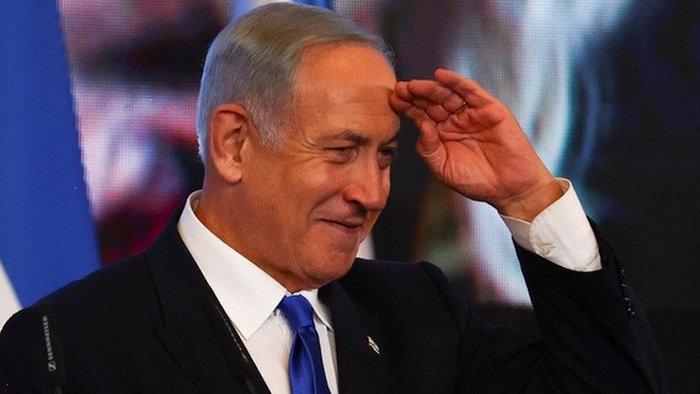Israel West Bank annexation rejected by European MPs in letter
- Published
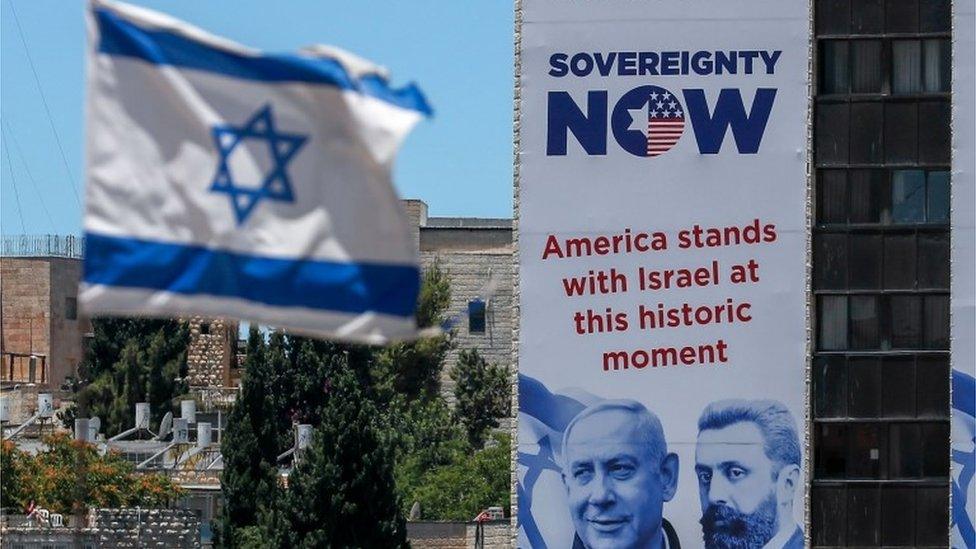
Israel could begin the annexation process next week
More than 1,000 parliamentarians from across Europe have signed a letter strongly opposing plans by Israel to annex parts of the occupied West Bank.
The letter raises "serious concerns" about the proposals and calls for "commensurate consequences".
More than 240 signatories are legislators in Britain. The Israeli embassy in London declined to comment.
The publication of the letter in several newspapers comes a week before the annexation process could begin.
According to a power-sharing deal which led to the formation of the current Israeli government last month, annexation can be put to a vote from 1 July.
The project is being led by Prime Minister Benjamin Netanyahu, who is seeking to extend Israeli sovereignty over parts of the West Bank containing Jewish settlements.
If passed, the move could incorporate up to 30% of the territory - land claimed by Palestinians for a future independent state of their own.
Israel's incorporation of the settlements was given the green light under US President Donald Trump's Vision for Peace - a plan for ending the decades old Israel-Palestinian conflict unveiled in January.
'Fatal to prospects of peace'
The letter,, external sent to European foreign ministries, warns that unilateral annexation of West Bank territory could be "fatal to the prospects of Israeli-Palestinian peace and will challenge the most basic norms guiding international relations".
It is a sign of growing international pressure over the proposals which stem from President Trump's plan for the region, says the BBC's Tom Bateman in Jerusalem.
The letter, signed by 1,080 parliamentarians from 25 countries, warns of the "destabilising potential" for the region.
Its British signatories include the Conservative Party's former leader Lord Howard, former EU commissioner Lord Patten and Baroness Pauline Neville-Jones, a former counter-terrorism minister who previously chaired the UK's Joint Intelligence Committee.
It is also signed by 35 members of Labour's current front bench, including shadow foreign secretary Lisa Nandy.
The former Labour leader Lord Kinnock is a signatory, as is former defence secretary and Nato chief Lord Robertson, as well as the Labour MP Dame Margaret Hodge who campaigned against anti-Semitism in the party.
European names on the list include France's security subcommittee chair, Nathalie Loiseau, Vice-President of the European Parliament Fabio Massimo Castaldo, and Ireland's next Prime Minister, Míchéal Martin.
'Permanent control'
The letter was organised by a former speaker of the Israeli parliament, Avraham Burg, along with three other public figures in Israel among those who have traditionally supported the so-called two-state solution of a Palestinian state in the West Bank alongside Israel.
It says President Trump's plan promotes "effectively permanent Israeli control over a fragmented Palestinian territory, leaving Palestinians with no sovereignty and giving a green light to Israel to unilaterally annex significant parts of the West Bank".


It warns that allowing annexation to pass "unchallenged" would encourage other states with territorial claims to "disregard basic principles of international law". It stops short of explicitly calling for sanctions against Israel if the move takes place.
'Realistic' solution
Israel's ambassador to Washington Ron Dermer wrote on Friday that Israel "plans to extend sovereignty to territories that will remain part of Israel in any realistic peace agreement", external.
He said Israel would not include territory the Trump plan designates for a future Palestinian state and would commit not to build settlements in those areas in the coming years.
Israel and the US describe the plan as a "realistic" two-state solution.
Mr Dermer added: "We hope it will convince the Palestinians that another century of rejectionism is a losing strategy and that the Jewish state is here to stay."
The Palestinians oppose the Trump plan outright and have boycotted diplomatic relations with the US.
Some 430,000 Jews live in over 130 settlements (and scores of smaller "outposts") built since Israel occupied the West Bank in the 1967 Middle East war.
The settlements are widely considered illegal under international law, though Israel - and the US under the Trump administration - denies this.
- Published25 June 2020
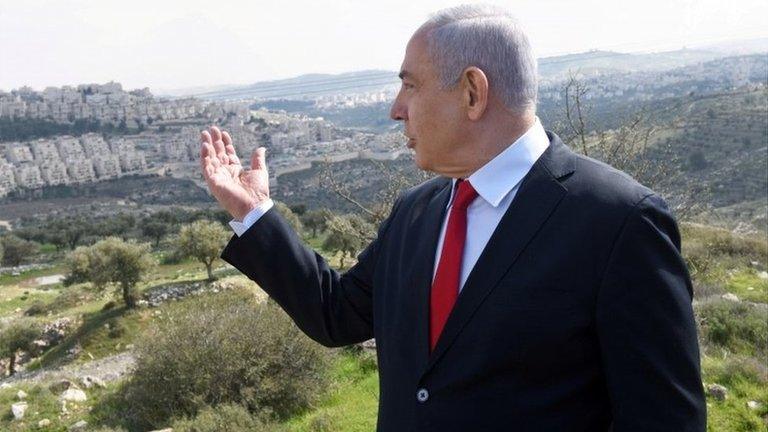
- Published29 January 2020
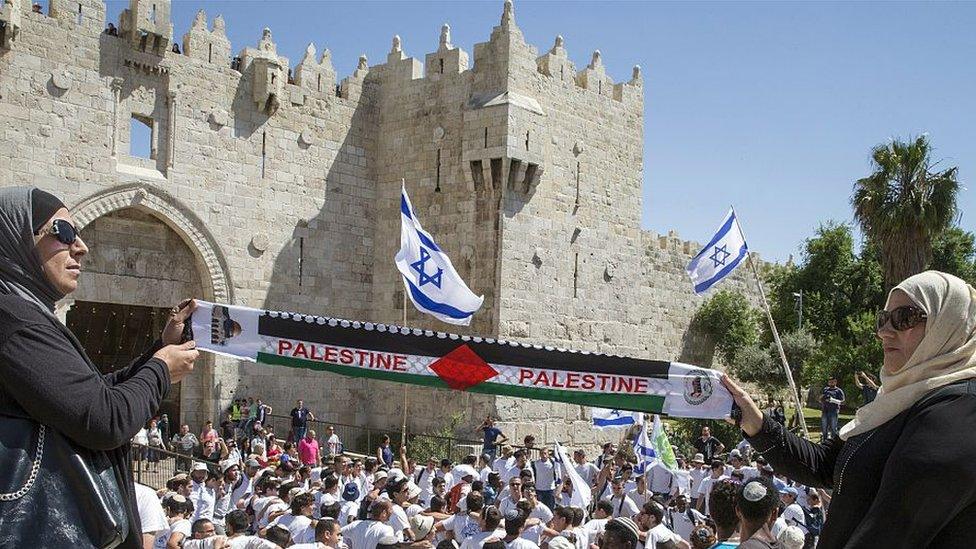
- Published28 January 2020
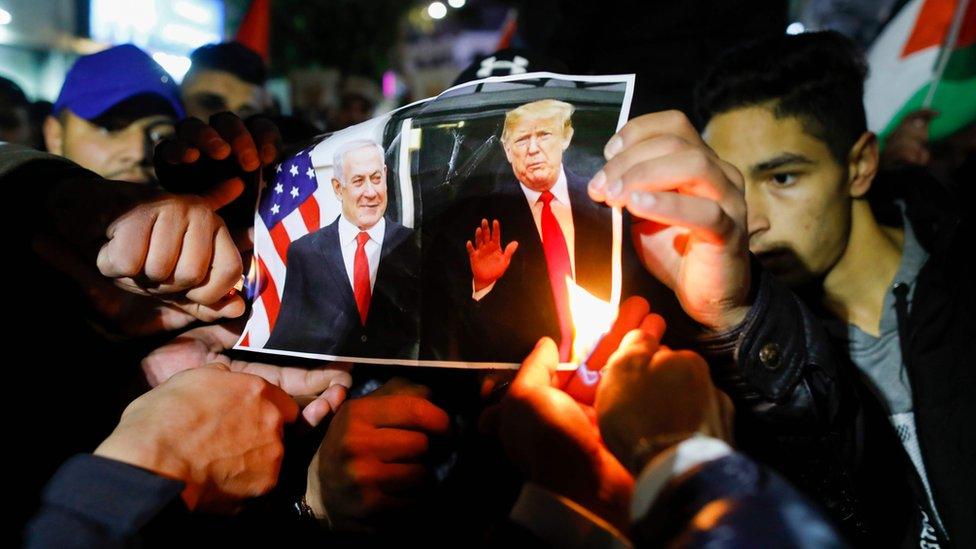
- Published29 January 2020

- Published28 January 2020
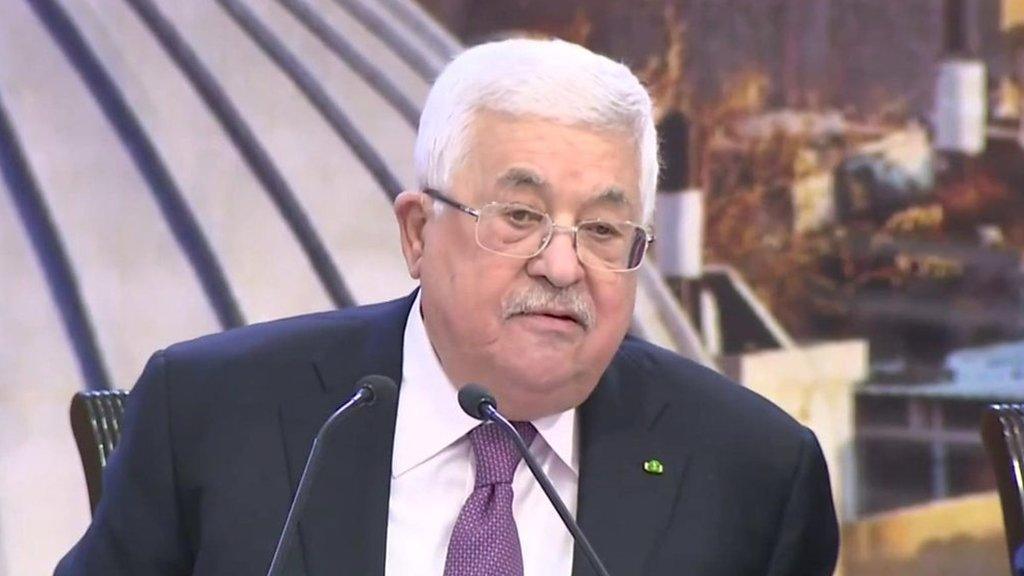
- Published21 November 2024
